iPhone 16 Pro Max vs iPhone 15 Pro Max: clash of the titans
Which supersized Apple flagship should you buy?
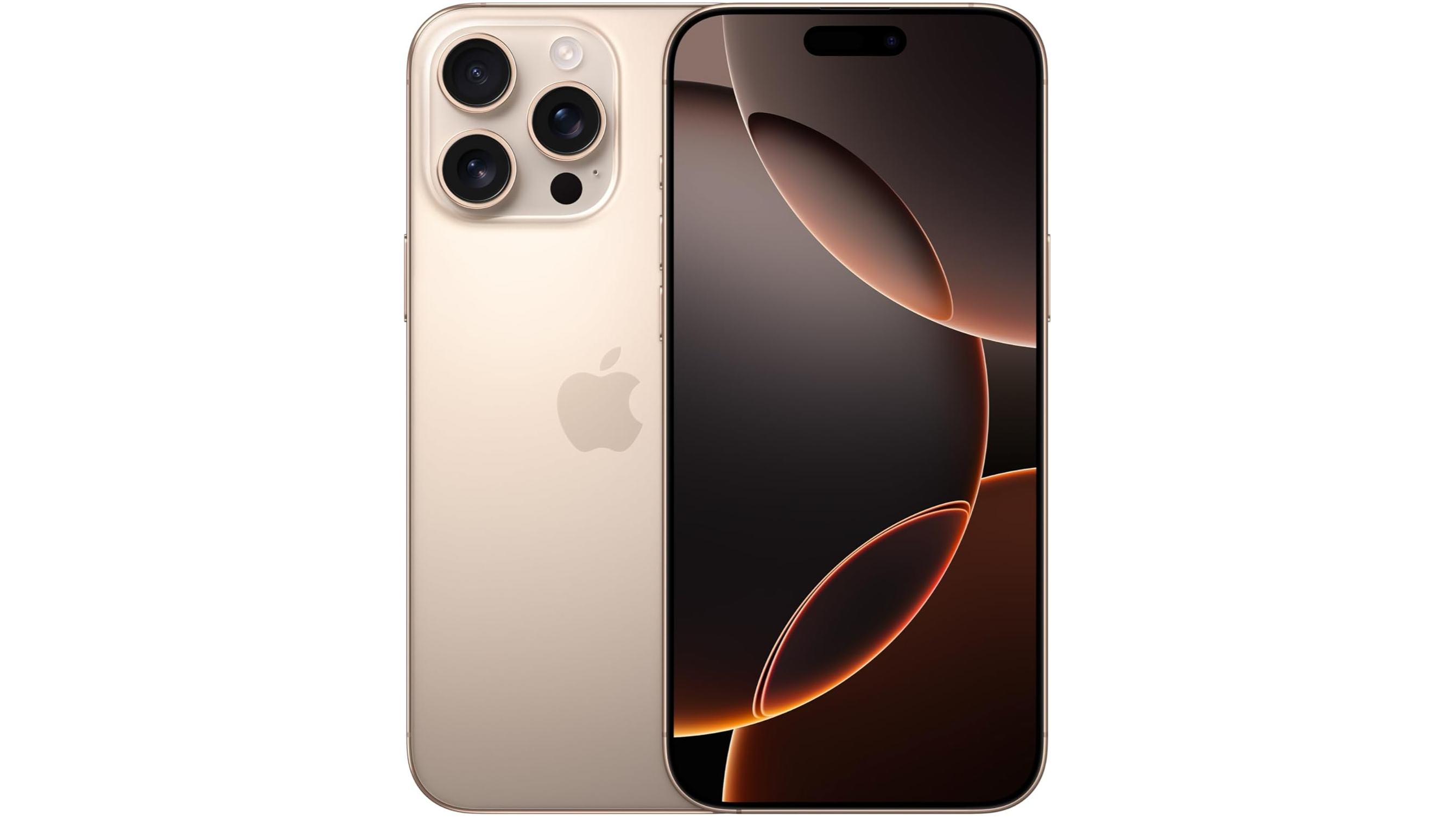
The iPhone 16 Pro Max is the largest iPhone Apple has ever produced. It's an absolute powerhouse, but the unfortunately shaky rollout of Apple Intelligence has taken away some of its shine. Still, this is a logical upgrade for those still using a years-old handset, and it may even tempt iPhone 15 Pro Max owners with its immersive screen, wonderful photography features, and AI potential.
Pros
- The largest iPhone display ever
- Camera Control functionality
- Incredible performance
Cons
- No Apple Intelligence at launch
- Very expensive
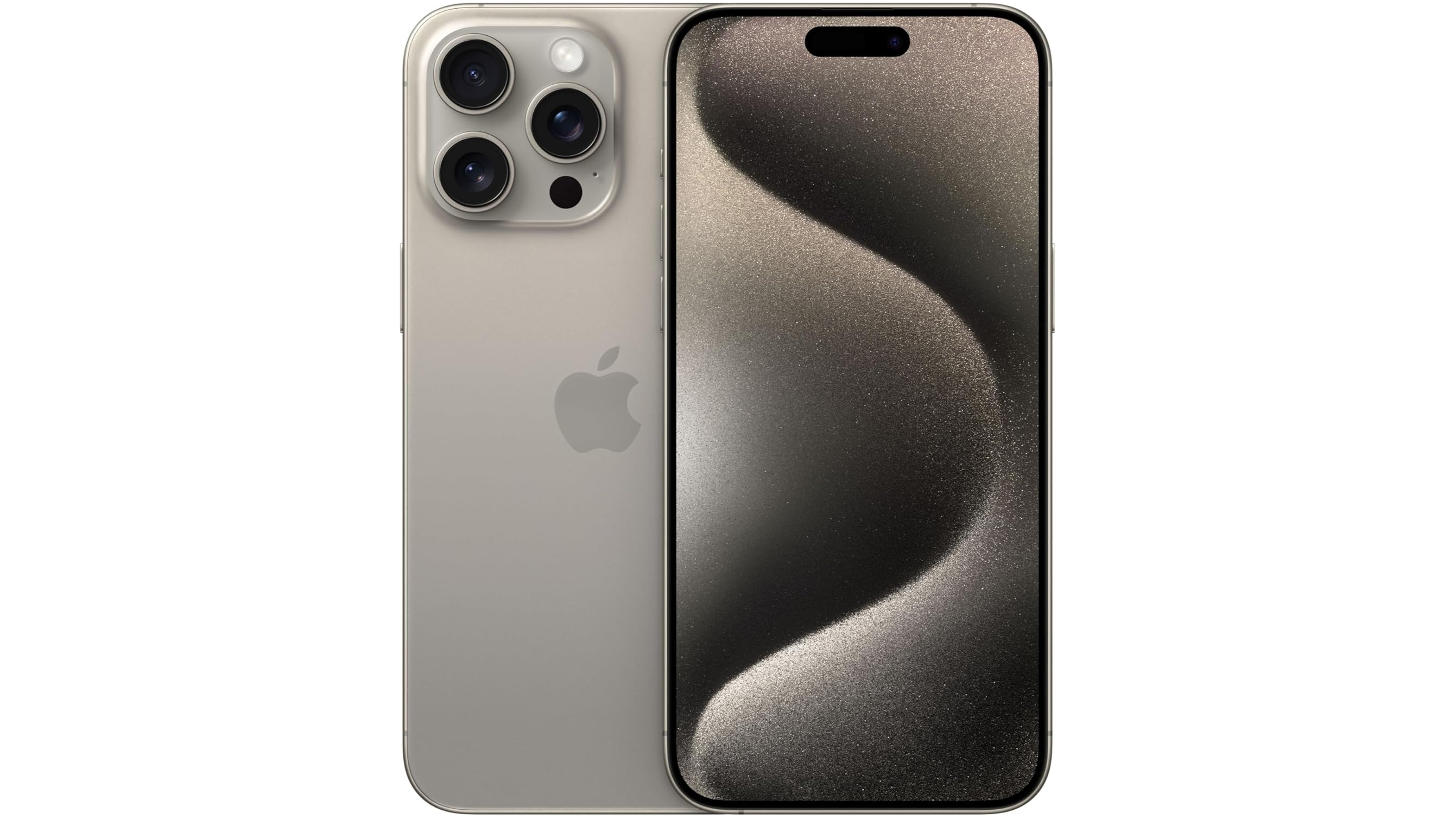
The iPhone 15 Pro Max remains a solid buy, especially considering it'll be getting the full suite of Apple Intelligence features alongside the iPhone 16 Pro Max. Sure, it's a little smaller, and doesn't have the new Camera Control, but overall this remains one of Apple's finest flagships.
Pros
- Great performance
- Excellent cameras
- Stunning titanium build
Cons
- No Camera Control
- No fast charging
The iPhone 16 lineup has arrived. Apple’s latest line of smartphones is available in stores and online right now, and as our reviews of the iPhone 16, iPhone 16 Plus, iPhone 16 Pro, and iPhone 16 Pro Max show, Apple has delivered another batch of high-performance premium handsets.
The iPhone 16 Pro Max arrives as Apple’s new ultra-premium flagship, with a larger display, a new Camera Control button, and an updated A18 Pro chipset to replace the now-discontinued iPhone 15 Pro Max.
That said, there's a lot carried forward from the iPhone 15 Pro Max, which has the same main camera, display technology, and construction as Apple's newest flagship.
So, just how similar are these two phones? In this guide, we compare the new iPhone 16 Pro Max to the iPhone 15 Pro Max, looking at what Apple’s changed about its highest-end phone in the space of a year.
iPhone 16 Pro Max vs iPhone 15 Pro Max: Specs comparison
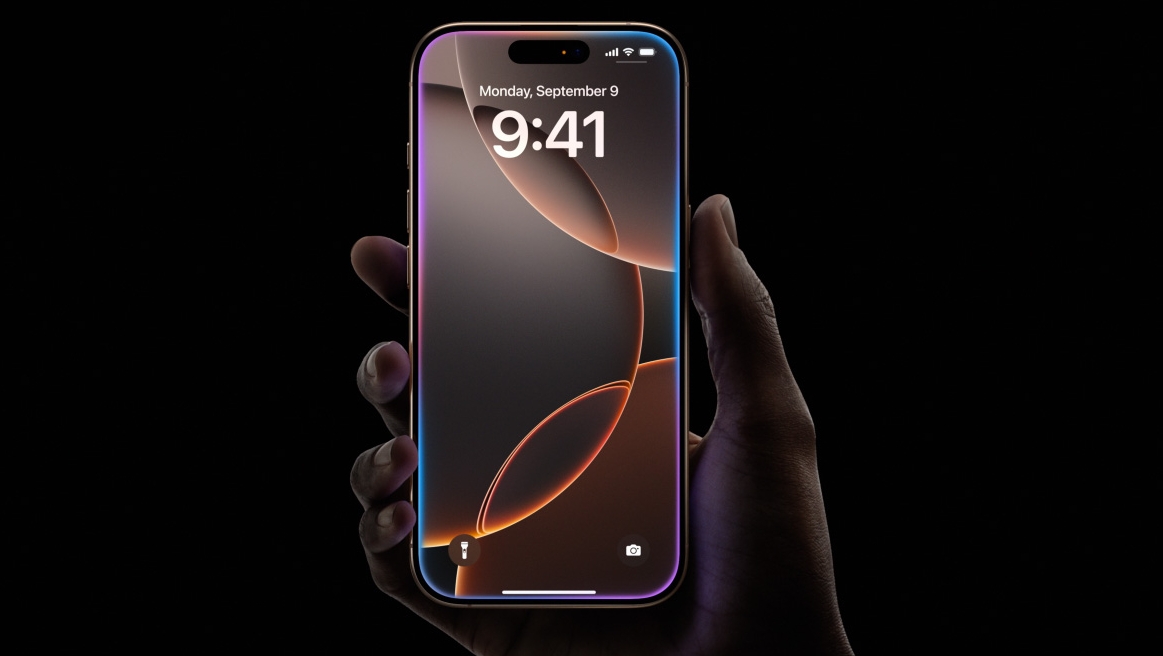
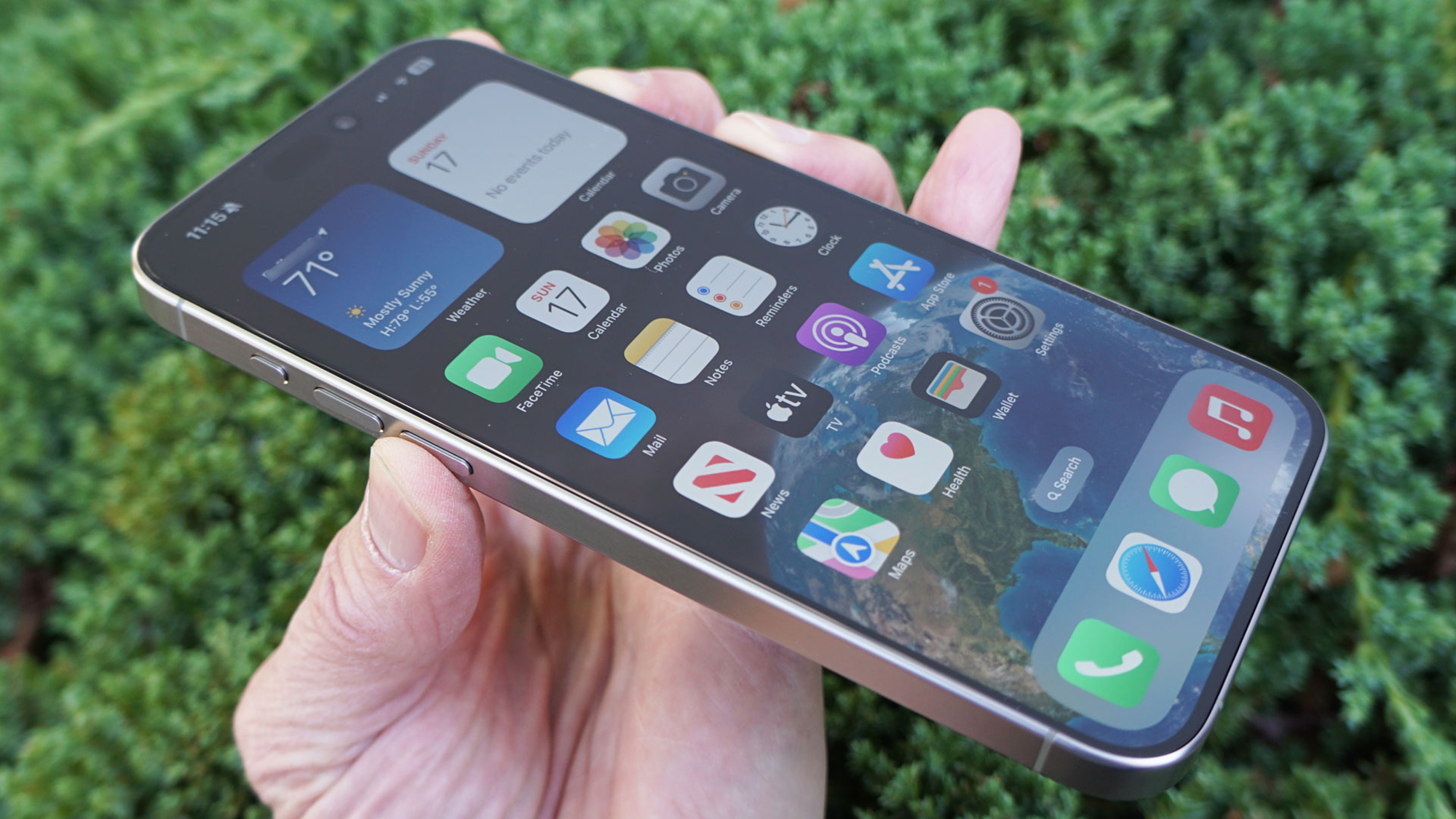
This guide includes a detailed breakdown of all the key components of the iPhone 16 Pro Max and iPhone 15 Pro Max, but if you’re just after a simple specs comparison, check out the handy table below:
| Header Cell - Column 0 | iPhone 16 Pro Max | iPhone 15 Pro Max |
|---|---|---|
| Display: | 6.9-inch Super Retina XDR OLED | 6.7-inch Super Retina XDR OLED |
| Resolution: | 2868 x 1320 | 2796 x 1290 |
| Refresh rate: | Adaptive 1-120hz | Adaptive 1-120hz |
| Chipset: | A18 Pro | A17 Pro |
| Rear cameras: | 48MP (main), 48MP (ultra-wide), 12MP (telephoto with 5x optical zoom) | 48MP (main), 12MP (ultra-wide), 12MP (telephoto with 5x optical zoom) |
| Front camera: | 12MP | 12MP |
| RAM: | 8GB | 8GB |
| Storage: | 256GB, 512GB, 1TB | 256GB, 512GB, 1TB |
| Battery: | 4,685mAh (unofficial) | 4,422mAh (unofficial) |
iPhone 16 Pro Max vs iPhone 15 Pro Max: Price and availability
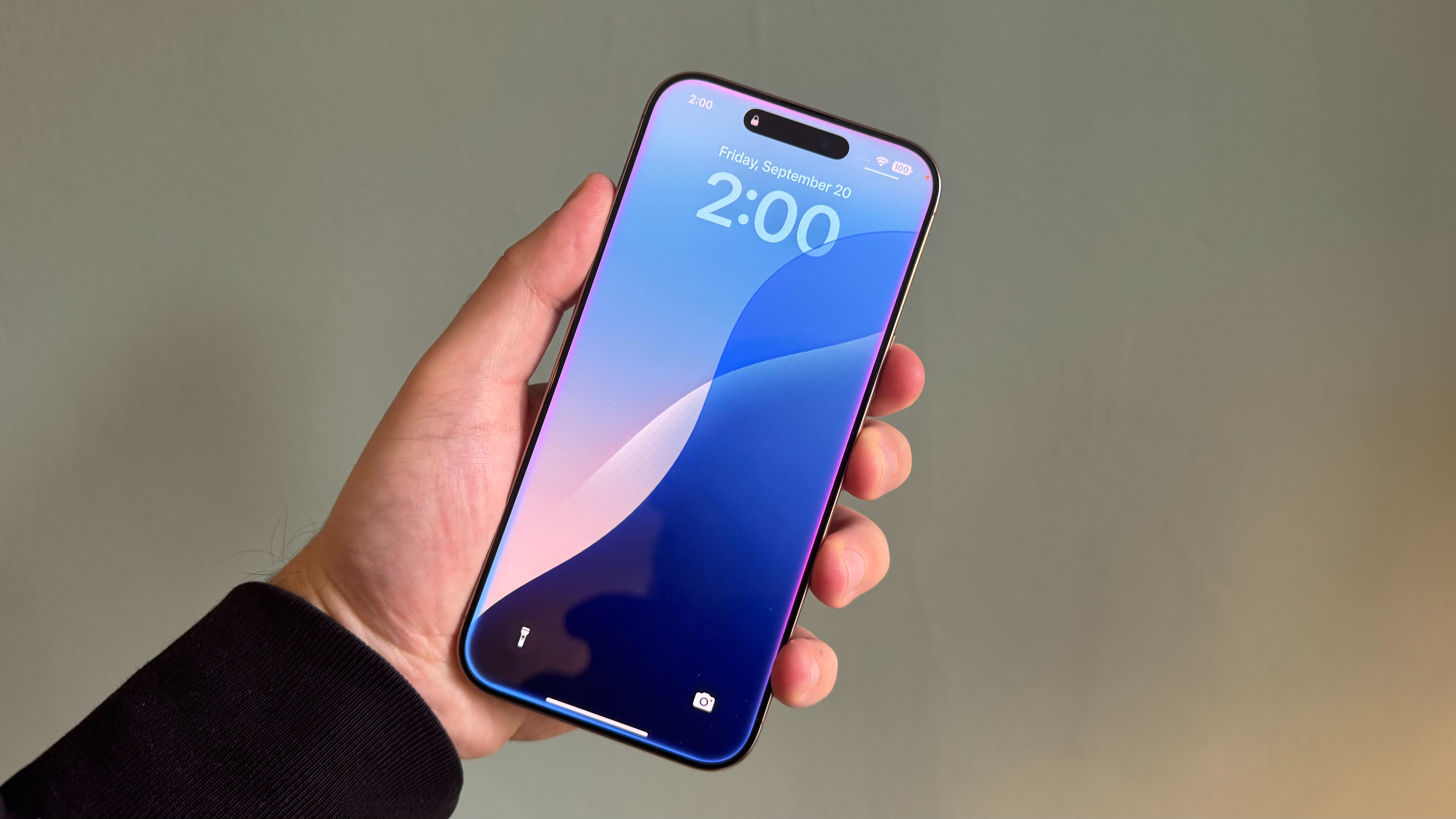
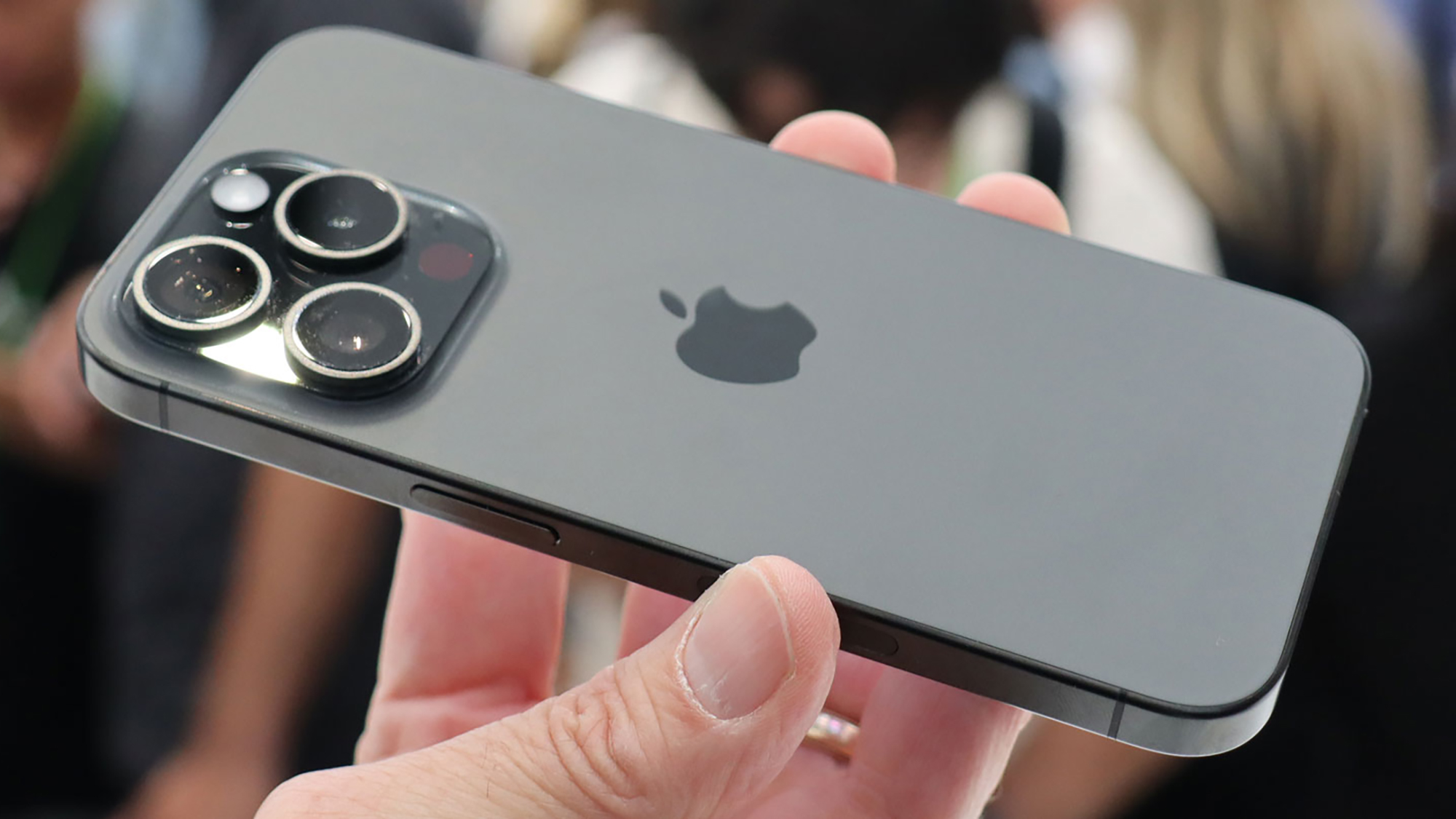
The iPhone 16 Pro Max is available now from $1,199 / £1,199 / AU$2,149; the first units hit store shelves on Friday, September 20. The maxed-out 1TB storage option will set you back a hefty $1,599 / £1,599 / AU$2,849.
As mentioned in our iPhone 16 Pro Max review, Apple's latest flagship isn’t cheap by any stretch of the imagination, but we’re at least glad prices weren’t increased this year.
Sign up for breaking news, reviews, opinion, top tech deals, and more.
The iPhone 15 Pro Max has already been discontinued by Apple, but it was sold for the same prices as the iPhone 16 Pro Max in the US and UK. In Australia, all storage options of the older phone actually cost AU$50 more.
The iPhone 15 Pro Max is currently on sale at a slight discount from third-party vendors in the wake of the iPhone 16 release, and you can reasonably expect prices to drop further as the year progresses.
However, demand – and therefore prices – for the iPhone 15 Pro and iPhone 15 Pro Max may remain higher than other discontinued Pro iPhones, as these two models will both support Apple Intelligence, Apple's suite of AI tools and features.
iPhone 16 Pro Max vs iPhone 15 Pro Max: design and display
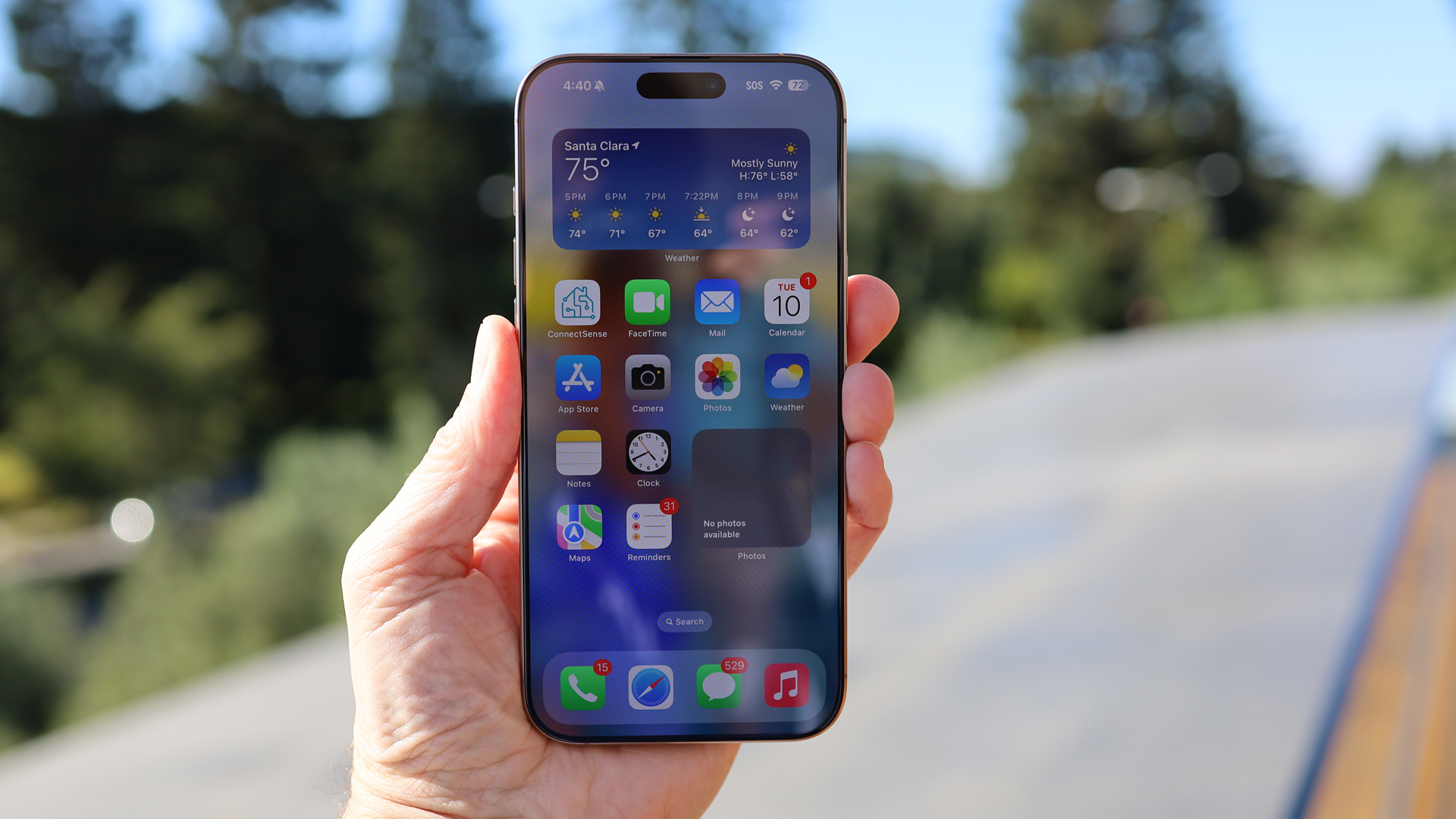
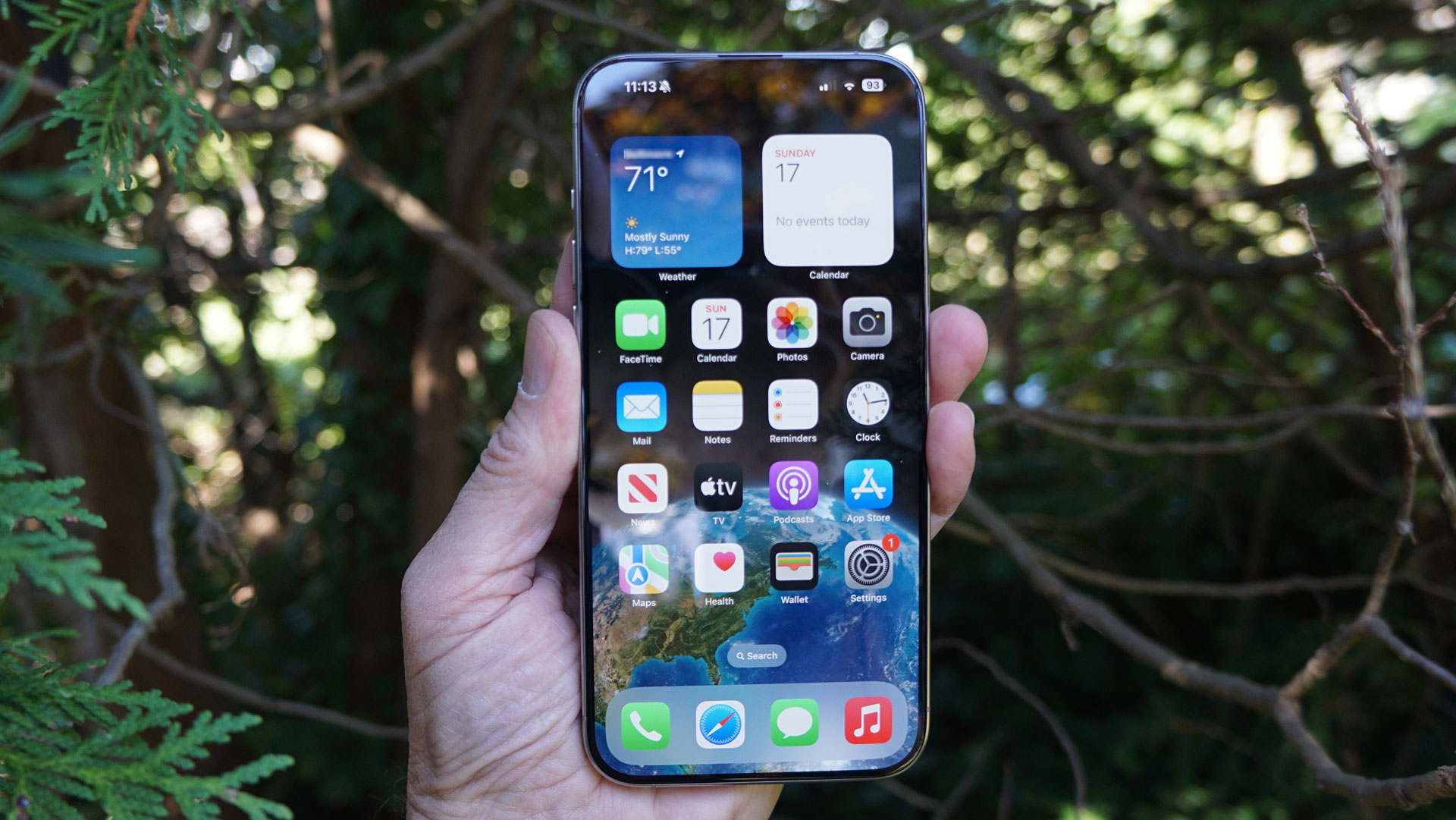
Design-wise, the iPhone 16 Pro Max is very similar to the iPhone 15 Pro Max – just slightly bigger.
The display on the iPhone 16 Pro Max is the largest ever fitted to an iPhone. Our review found the new 6.9-inch screen impressively sharp and immersive, thanks in part to the newly thinner bezels. For comparison, the iPhone 15 Pro Max is the same size as the previous three generations, with a 6.7-inch display.
This increased size brings the iPhone 16 Pro Max a small increase in resolution; 2868 x 1320 to the iPhone 15 Pro Max’s 2796 x 1290. This means both phones maintain the same 460ppi pixel density.
Other than the size, there really is very little difference between the two panels. Both are OLED displays with an adaptive 1-120hz refresh rate (which Apple brands as ProMotion), both reach a peak outdoor brightness of 2,000 nits and a peak indoor brightness of 1,600 nits for HDR content, and both feature the Dynamic Island and an optional Always-On display.
Still, the difference in display size means the overall dimensions of the two phones are slightly different, an effect somewhat mitigated by the iPhone 16 Pro Max’s smaller bezels. The iPhone 16 Pro Max measures 163mm x 77.6mm x 8.25mm, while the iPhone 15 Pro Max measures 159.9mm x 76.7mm x 8.25mm.
The iPhone 16 Pro Max also sports the brand-new Camera Control capacitive button on the lower right-hand side, placed optimally for taking shots in landscape (more on that later).
The two phones otherwise have a near-identical titanium construction, with a slightly rounded frame, USB 3.0 port, power, volume, and Action buttons, down-firing speakers and a slither of a speaker grille for phone calls and stereo audio. Both are rated IP68 against dust and water, meaning they’ll resist dust of any size and can survive submergence in 1 meter of water for up to 30 minutes.
As for colors, the iPhone 16 Pro Max carries forward the Black Titanium, White Titanium, and Natural Titanium options from the iPhone 15 Pro Max, but swaps last year’s Blue Titanium colorway for the new bronze-like Desert Titanium option.
iPhone 16 Pro Max vs iPhone 15 Pro Max: cameras
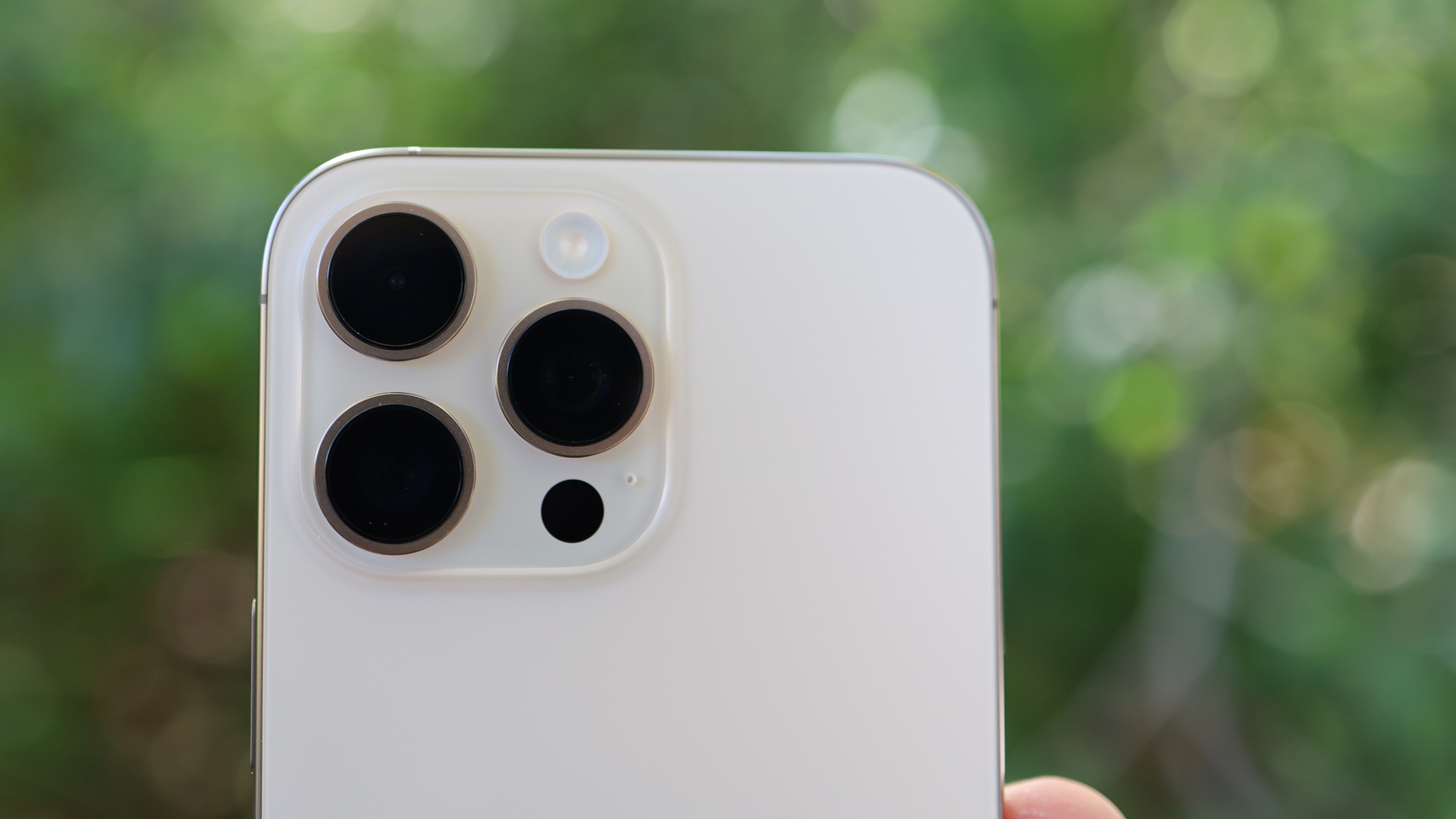
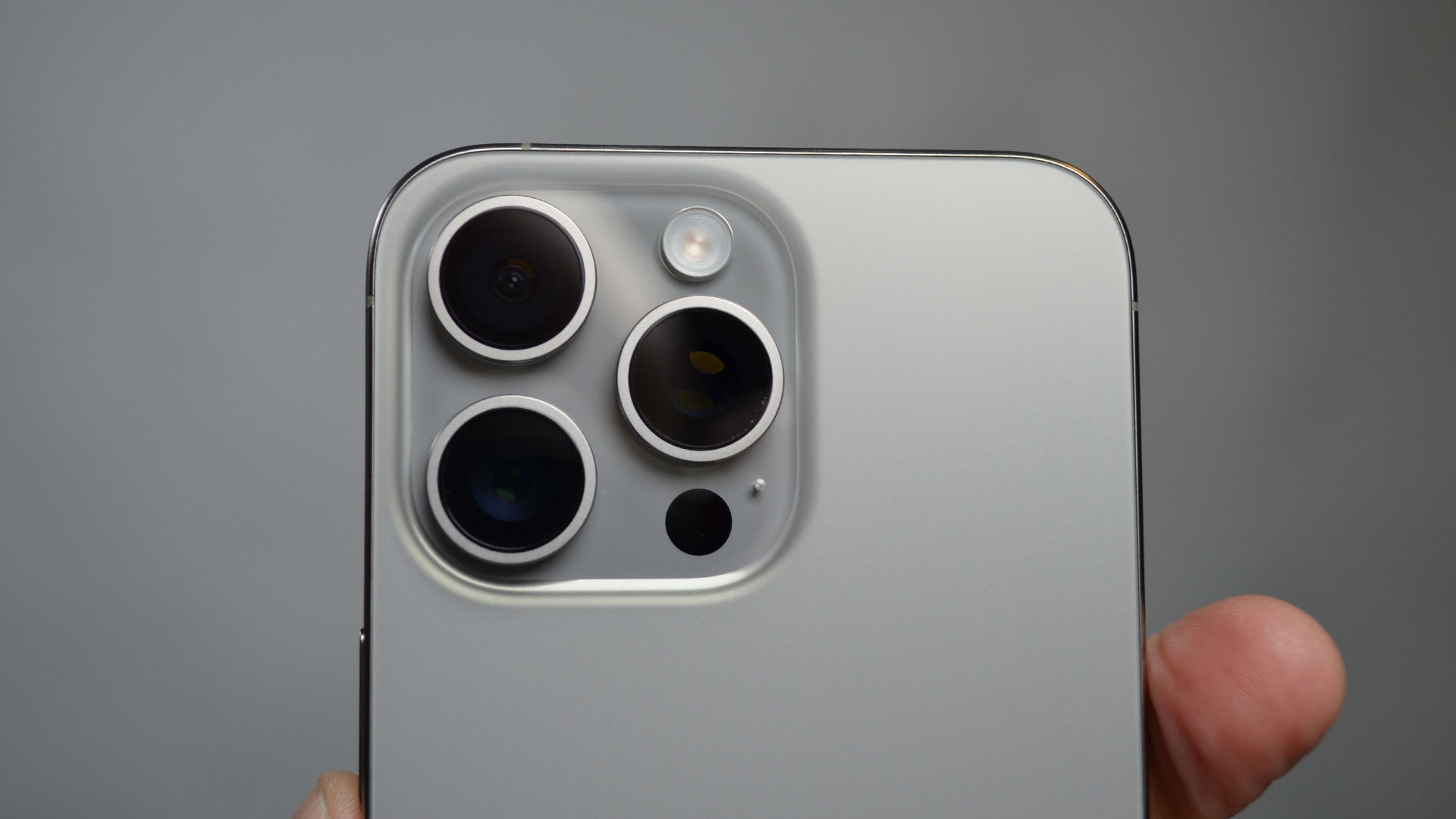
The iPhone 16 Pro Max gets a few camera upgrades over the iPhone 15 Pro Max, which together comprise its most tangible hardware upgrades.
Both phones come equipped with three cameras in Apple’s now-iconic triangular orientation. Both have the main camera and ultra-wide camera oriented vertically, which allows for spatial video recording. The iPhone 16 Pro Max can also capture spatial photographs.
The phones both have a 48MP f/1.8 main camera – as far as we can tell, this is the same camera, despite Apple’s new Fusion Camera branding for the iPhone 16 lineup. Both come with the same 12MP f/2.8 telephoto camera with 5x optical zoom and 25x digital zoom.
However, the iPhone 16 Pro Max’s 48MP f/2.2 ultra-wide camera is a considerable improvement on the 12MP f/2.2 ultra-wide found on the iPhone 15 Pro Max, and allows for high-resolution macro photography.
Most strikingly, the iPhone 16 Pro Max gets the new Camera Control capacitive button. This recessed piece of haptic-enabled touch-sensitive glass can act as a shutter and accept touch gestures for zoom, focus, and other functions.
Our review found that Camera Control can make the iPhone 16 Pro Max “feel like a real camera”, but also notes that the two-step focus and shutter function familiar to point-and-shoot or DSLR users is, bizarrely, missing at launch.
The Camera Control will also tie into Apple Intelligence, wherein it will activate the Visual Intelligence environmental analysis feature, which is fairly similar in operation to Google Lens.
iPhone 16 Pro Max vs iPhone 15 Pro Max: performance
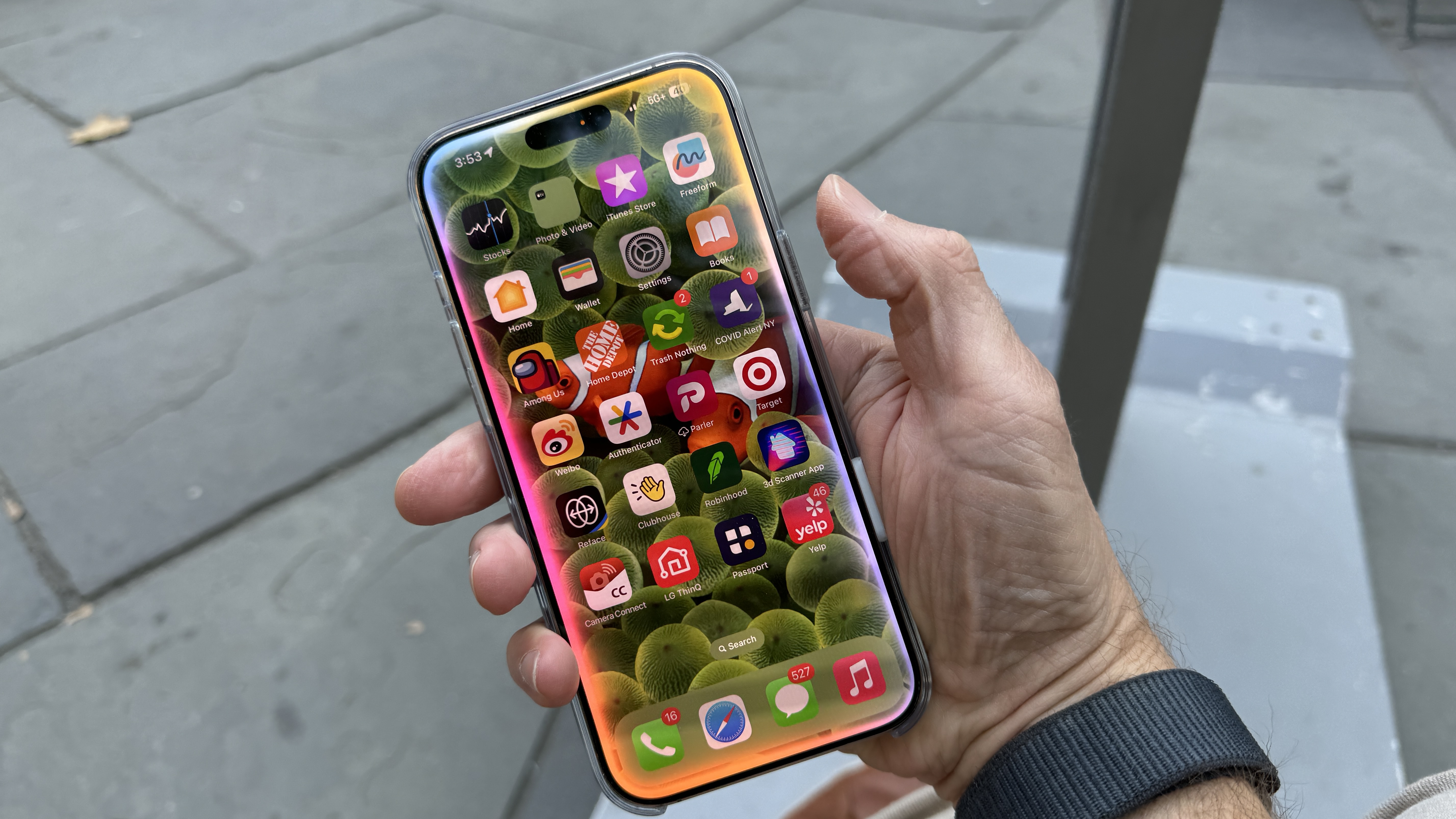
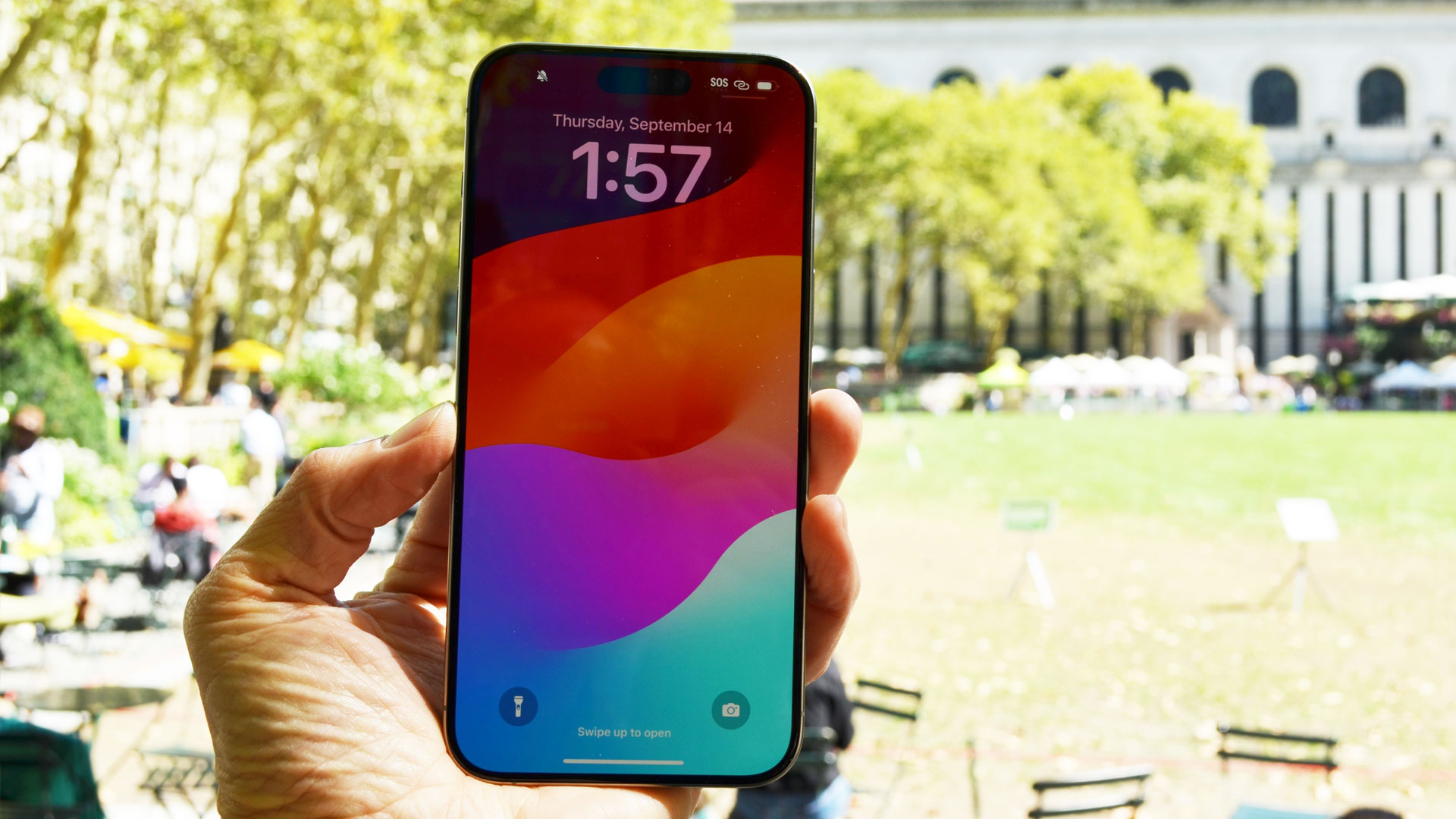
Apple is calling the iPhone 16 family the “first iPhones designed from the ground up for Apple Intelligence”, and part of that design lies under-the-hood.
The iPhone 16 Pro Max, along with its (relatively) little sibling the iPhone 16 Pro, gets the A18 Pro chipset. Apple says the A18 Pro offers 15% better processing performance and 20% better graphics performance than the A17 Pro chipset found in the iPhone 15 Pro Max.
On paper, both chipsets have a similar composition: both the A18 Pro and A17 Pro have a 6-core CPU with 2 performance cores and 4 efficiency cores, a 6-core GPU, and a 16-core Neural Engine for machine learning processing.
The A18 Pro has 17% more memory bandwidth compared to the A17 Pro, meaning it can process more data in the same amount of time.
Both phones come with 8GB of RAM, with storage options including 256GB, 512GB, and 1TB.
We anticipate a very similar user experience software-wise, as both the iPhone 16 Pro Max and iPhone 15 Pro Max run iOS 18, and both will be able to run the full suite of Apple Intelligence features when they launch with iOS 18.1.
Due to the staggered launch of Apple Intelligence, we don't yet know how Apple’s AI suite will perform on either phone. The increased memory bandwidth of the A18 Pro chip may afford the iPhone 16 Pro Max some extra AI performance, but both phones have the same 16-core Neural Engine at the center of machine learning tasks, so the difference isn’t likely to be that striking.
iPhone 16 Pro Max vs iPhone 15 Pro Max: battery
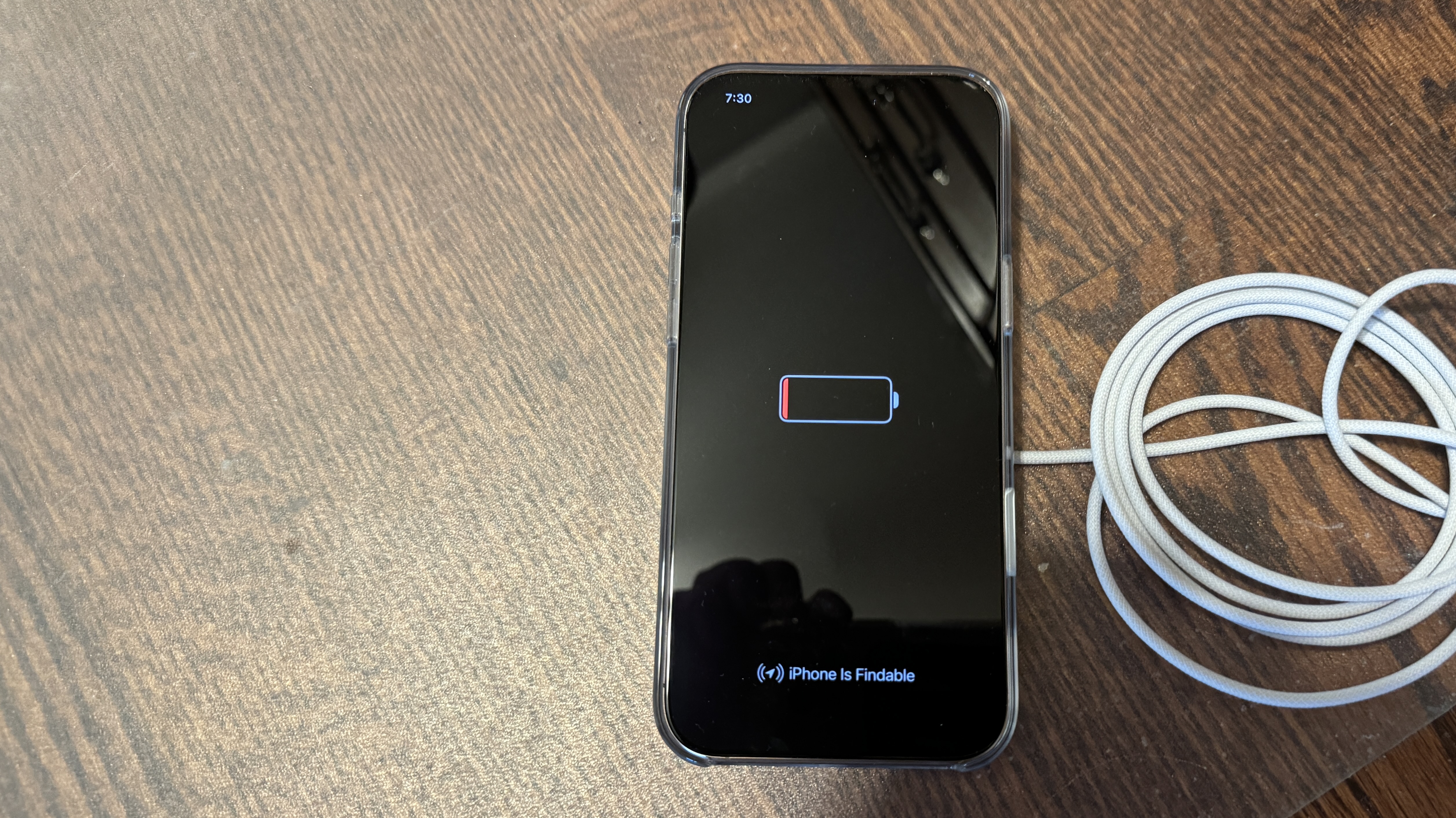
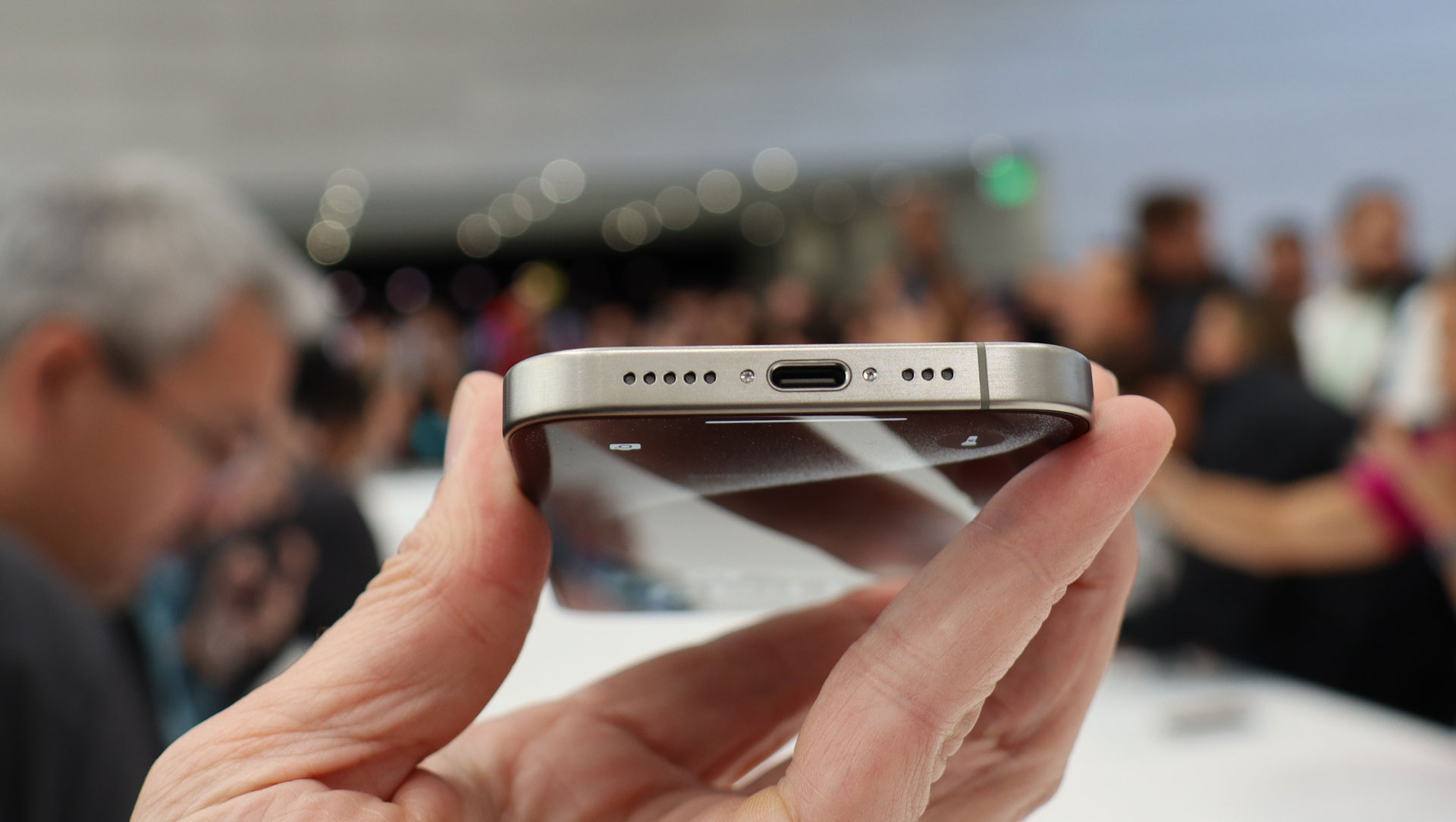
Apple is infamously cagey about the battery capacity of its products and never shares the exact capacity in milliamp hours (mAh), instead preferring to quote hours of battery life for different usage scenarios – though we do now have some unofficial confirmation of the iPhone 16 series’ battery capacities.
Apple claims the iPhone 16 Pro Max lasts for 33 hours of video playback, an increase of 4 hours compared to the iPhone 15 Pro Max’s quoted 29 hours of video playback.
In our iPhone 15 Pro Max review, we found that the iPhone 15 Pro Max lasted for 28 hours of varied usage, which bodes well for the quoted battery life of its successor, though we can’t say for sure until we test it for ourselves.
Rumors suggest that the iPhone 16 lineup could be the first Apple smartphone lineup to have gotten 45W fast charging, but Apple hasn’t confirmed this yet, instead saying the iPhone 16 Pro Max charges to 50% in 30 minutes using a 20W or higher wired charger, or 30W or higher MagSafe charger. The company issued this same claim with the iPhone 15 Pro Max.
Both phones support the Qi wireless charging standard, and as mentioned both support MagSafe charging.
iPhone 16 Pro Max vs iPhone 15 Pro Max: verdict
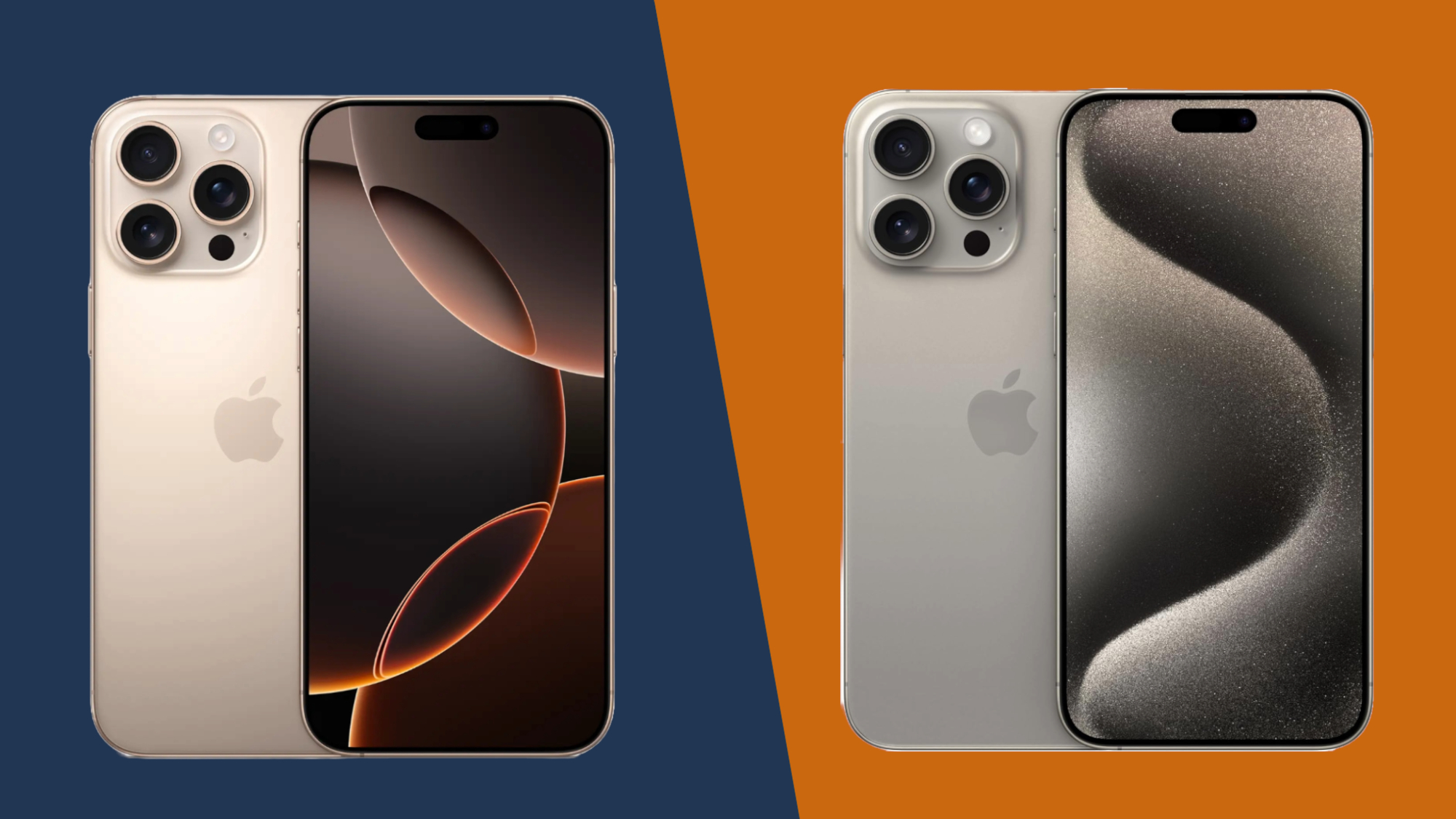
As our review declares, the iPhone 16 Pro Max is a beautiful and beastly phone that's ready for anything you can imagine throwing at it – at the time of writing, it's the best iPhone money can buy.
If you want Apple’s biggest-ever smartphone, then the iPhone 16 Pro Max is your go-to, and it helps that the bigger frame holds a larger battery, too.
The internal specs are all top-class, but the iPhone 16 Pro has the same internals for $200 less, and the iPhone 15 Pro Max isn’t too far off in either performance or price. The Camera Control button revolutionizes how you use the camera app, but if you just want that particular feature, you can get it for less on one of the standard iPhone 16 models.
If you’ve been waiting a few years to upgrade, the iPhone 16 Pro Max is the obvious choice, but upgrading from the iPhone 15 Pro Max is a tougher sell. If you’re all about AI, it might be worth holding fire until Apple Intelligence is out, as we currently have no idea about how the stable release of Apple’s AI package will run on either handset.
Internal updates to Apple’s top-of-the-line iPhones are becoming more incremental year-on-year, and with Apple Intelligence coming to both phones – and not ready at launch for the iPhone 16 Pro Max anyway – it’s currently hard to say whether the software experience will differ much between the two models.
Still, we think it’s very unlikely that you’ll be disappointed with the iPhone 16 Pro Max. The Camera Control button is likely to make upgrading worthwhile for photographers, while the larger screen size means videos and games are sure to look phenomenal.
You might also like

Jamie is a Mobile Computing Staff Writer for TechRadar, responsible for covering phones and tablets. A lifelong tech-obsessive, Jamie began his writing career as a music blogger before studying journalism at Goldsmiths College, and joined TechRadar in 2024. He thinks the iPhone 5S is the greatest phone of all time, but is currently an Android user.
As well as reporting on the latest in mobile hardware, software, and industry developments, Jamie specialises in features and long-form pieces that dive into the latest phone and tablet trends. He can also be found writing for the site's Audio and Streaming sections from time to time, or behind the decks as a DJ at local venues around London.